Spinal Surgery in Germany – treatment in the Best Hospitals
Here you will find most technologically advanced spinal surgery hospitals in Germany
Focus of treatment:
- Cervical spinal disc herniation
- Cervical spinal stenosis
- Chronic spinal pain
- Ependymoma
- Ependymoma
- Facet syndrome
- Failed back surgery syndrome
- Intramedullary spinal cord hematoma
- Lumbar spinal disc herniation
- Lumbar spinal stenosis
- Neck Neurinoma
- Osteochondrosis
- Spastic syndrome
- Spinal astrocytoma
- Spinal cord empyema
- Spinal cord lipoma
- Spinal cord malignant tumor
- Spinal meningioma
- Spinal neurinoma
- Syringomyelia Show more
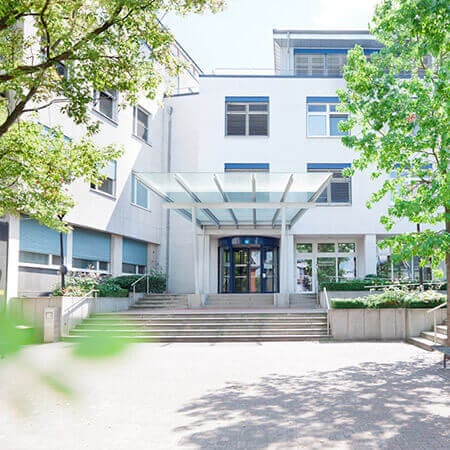
Department of Spinal Surgery
The Department of Spinal Surgery is part of the specialized Center for Musculoskeletal Disorders, in which spinal surgeons, orthopedists, and trauma surgeons work in close cooperation for the benefit of patients. The department provides both conservative and surgical treatment of all back pain syndromes, which can be caused by d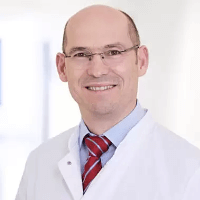
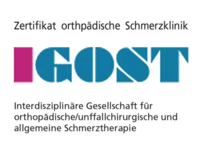
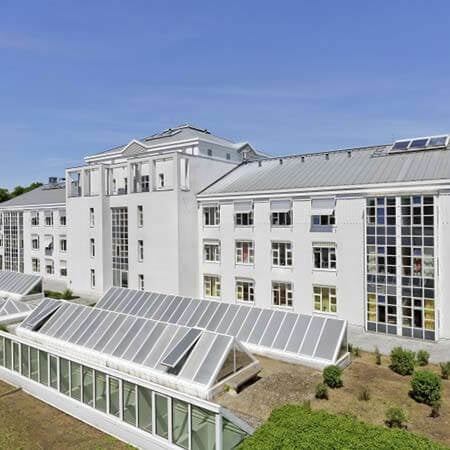
Department of Spinal Surgery
The Department of Spinal Surgery at the Vivantes Auguste-Victoria Hospital all diseases of the spine - both conservatively and operatively. Patients with herniated intervertebral discs, displacement of vertebrae, stenosis of the spinal canal or back pain are treated here. In addition, specialists of the department have a unique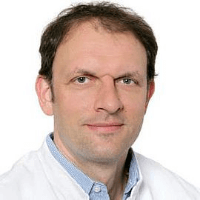
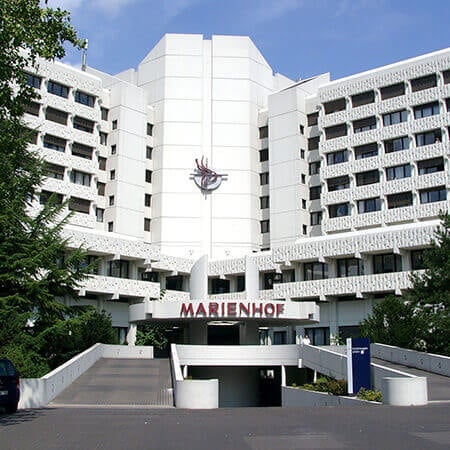
Department of Spinal Surgery
The Department of Spinal Surgery offers the full range of effective treatment methods in the area of its specialization. A highly qualified team of doctors is at the service of the department's patients, who have in their arsenal advanced conservative and surgical treatment methods for pathological changes in the spine. Spin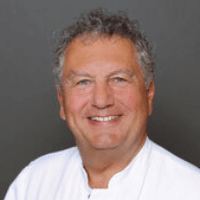
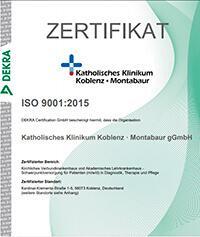
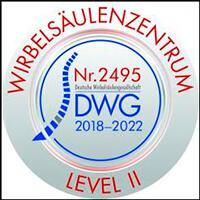
The causes of back pain can vary widely. Some patients have back pain due to incorrect posture or genetic predisposition; other cases are related to injury and actual spine diseases. It is common for pain to occur due to psychological, mental problems, and stress. However, different treatment methods are used for the different causes of back pain. Successful treatment is only possible if an accurate diagnosis is made and the right treatment tactic is prescribed.
Content
- When is spinal surgery in Germany carried out?
- Diagnostics before spinal surgery
- Types of spinal surgeries in Germany
- Surgery for spinal disc replacement
- Spinal fusion (spondylodesis)
- Treatment of spinal stenosis
- Treatment of the herniated spinal disc
- Rehabilitation after spinal surgeries in Germany
- Why do international patients choose treatment in Germany?
- The cost of treatment with spinal surgery
- How to undergo spinal surgery in Germany?
When ist spinal surgery in Germany carried out?
Doctors in Germany choose medical interventions with caution and find them necessary only when using conservative medical methods are obviously inefficient.
Medical centers in Germany perform surgical treatment of the following spinal pathologies:
- Congenital spinal abnormalities (related to the structure of the spine)
- Spinal cord injuries (fracture due to compression, etc.)
- Spinal disc disease
- Spinal tumors
- Spinal stenosis
Spinal surgery includes interventions on the backbone.
There are open, minimally invasive and robotic surgeries. They are used to treat herniated discs, spinal stenosis, scoliosis, spinal tumors and injuries, facet syndrome, etc.
| Disease | Cost of the spinal surgery |
|---|---|
| Spinal disc herniation, cervical region, endoscopic or microscopic nucleotomy (1 segment) | from €8,021 |
| Spinal stenosis, cervical region, surgical decompression (1 segment) | from €11,792 |
| Osteochondroma, surgical treatment | from €8,914 |
| Malignant tumor of the spinal cord, microsurgical removal | from €19,716 |
| Syringomyelia, surgical treatment | from €16,220 |
Surgery reduces pain and improves mobility in patients with spine diseases.
| Hospital | City |
|---|---|
| Hospital Neuwerk | Mönchengladbach |
| Vivantes Auguste-Victoria Hospital | Berlin |
| Catholic Clinic Koblenz-Montabaur | Koblenz |
| Charite University Hospital Berlin | Berlin |
| Beta Klinik Bonn | Bonn |
Diagnostics before spinal surgery
As a rule, foreign patients come to hospitals in Germany with an established diagnosis. Thus, it is necessary to have all available medical reports with the results of the previous medical examination and data on the conducted treatment.
However, patients should be prepared for the fact that many examinations will be repeated, as these are the legislation requirements in Germany. Typically, the list of standard diagnostic procedures includes:
- Consultation with the attending physician
- Laboratory tests
- CT and/or MRI scans
- Consultation with an anesthesiologist
If indicated, other examinations may be prescribed (ultrasound scan of head and neck vessels or/and angiography in cervical spine lesions, biopsy in tumor metastases in the spine, etc.), as well as consultations with related specialists.
Types of spinal surgeries in Germany
Each case is unique, and the type of surgery is determined by the doctors based on many factors, including the severity of the disease, the cause of its development, diagnostic findings, and related medical conditions.
Today, the most advanced method of surgical treatment is minimally invasive surgery, which involves manipulations through small incisions. Such surgeries are performed using special equipment and assistive systems. A minimally invasive approach is preferred because it carries fewer risks and facilitates postoperative recovery.
An important advantage of undergoing spine surgery in Germany is the development of minimally invasive spine surgery techniques, which are performed using laser and/or microsurgical instruments and are not connected with severe trauma to the healthy body tissues. Here are examples of minimally invasive spine surgeries:
- Kyphoplasty and percutaneous vertebroplasty for spinal compression fractures
- Laser disk decompression at the initial stage of stenosis
- Endoscopic microdiscectomy
The latest methods of surgical treatment of the spinal cord provide maximum preservation of its physiological properties. For example, at the initial stages of osteochondrosis, operations are performed to renew the intervertebral disc biologically, and if the intervertebral discs are destroyed completely, endoprosthesis is performed.
In severe clinical cases, specialized hospitals in Germany perform complex orthopedic corrective surgeries, such as lumbar spinal fusion. It should be noted that hospitals in Germany have vast experience in restoring the structure and function of the vertebrae.
Another important advantage of spine surgery in Germany is the quality of medical measures for rehabilitation, which allows patients to restore spinal mobility, the freedom of movement and the joy of full-fledged life.
Surgery for spinal disc replacement
The most common type of spinal surgery is spinal disc replacement with an endoprosthesis. The surgery is performed under a microscope with minimal trauma to the surrounding tissues.
When a disc injury results in permanent damage to the spine and other surgical manipulations cannot guarantee a stable effect, the intervertebral disc must be replaced. The indication for spinal disc replacement surgery is pronounced degenerative changes in the intervertebral disc of any origin, both metabolic and post-traumatic, or its significant destruction.
Certain forms of fractures, tumors, spondylosis, and spondylolisthesis may be contraindications to spinal disc replacement surgery.
Spinal fusion (spondylodesis)
One of the main goals of any spinal surgery is to stop the pain caused by degenerative changes in the joints. One of the most effective ways to reduce pain from degeneration is to block movement in the affected spine structures by spinal fusion. Spondylodesis is an operation during which two (or more) separated vertebrae are connected.
Spondylodesis has been used in spine surgery for many years to treat painful conditions in the lumbar spine and for fixation for various deformities.
Treatment of spinal stenosis
Spinal stenosis (narrowing) is a pathology that occurs due to aging and associated degenerative changes in the spine. Spinal stenosis puts pressure on the spinal cord and nerves, resulting in back pain and pain in the lower extremities, as well as a feeling of heaviness in the legs, weakness when walking, and other symptoms.
Stenosis can occur in different parts of the spine but is most common in the lumbar spine. Statistically, narrowing in the spine is most common in older and elderly patients whose spinal structures have undergone age-related changes.
Spinal stenosis treatment, in turn, depends on how severe the pathology is and which related health problems this disease creates.
So, with milder forms of stenosis, it is effective to use conservative treatment, consisting of the rest regimen, the correct distribution of loads on the body, and therapeutic physical exercises. Painkillers can reduce the pain when the disease is accompanied by pain syndrome in the thoracic and lumbar regions of the spine.
Surgical treatment of spinal stenosis is used when no other conservative methods show effectiveness and the disease is progressing, causing serious physiological disorders. The goal of surgical treatment is to eliminate the compression of the spinal cord, spinal nerves, and vessels by expanding the space of the spinal canal. The neurosurgeon removes the pathology (hernia, tumor, or other medical condition) that caused the stenosis.
Treatment of the herniated spinal disc
The herniated spinal disc does not always require radical treatment measures in the form of surgery, as conventional treatment helps get rid of most symptoms at the onset of the condition. However, in cases where conservative treatment methods have not yielded the desired result, or a herniated disc compresses a nerve or spinal cord, and the disease poses a serious threat to the general health of patients, removal of the hernia by surgery is recommended.
Treatment in Germany provides patients who require the neurosurgical treatment of herniated intervertebral discs with the full range of modern minimally invasive surgery methods for spinal disorders. Depending on the complexity of the clinical case, the pressure on the spinal cord, or compressed nerve endings, different types of surgical interventions can be performed for herniated intervertebral discs. Those mostly include endoscopic microdiscectomy and laminectomy.
Endoscopic microdiscectomy is a minimally invasive surgery that removes deformed parts of the intervertebral disc. Surgery is performed under general anesthesia, and the postoperative period usually takes several days, after which the patient is back on his feet and is discharged from the hospital.
A laminectomy involves creating more space around a trapped nerve by removing one or more vertebral arches. This restores blood flow, relieves pressure on the nerve, and eliminates pain caused by the nerve’s positioning. In cases of lumbar spine surgery, a special metal structure is installed to further stabilize the spine.
Rehabilitation after spinal surgeries in Germany
Doctors usually recommend undergoing a 6 week-long rehabilitation course after spinal surgery. A comprehensively designed program will help reduce pain and inflammation, improve mobility and muscle strength of the spine, and allow patients to go about daily activities with greater ease.
Restorative therapy has the following goals:
- Improve the overall health
- Improve flexibility and strength of the spine
- Learn proper posture and modified body movements
- Accelerate the process of getting back to the normal lifestyle
Why do international patients choose treatment in Germany?
Germany is an internationally recognized center of medical tourism. People from all over the world come to Germany to treat back pain and spine diseases.
Spinal surgery is one of the leading fields of medicine in Germany. The specialists in spinal surgery in Germany are considered highly professional and experienced and are proficient both in conservative spinal treatment methods and in the latest surgical techniques.
Among German hospitals, there are specialized medical centers that annually treat many patients with spine conditions from all over the world.
Visit the Booking Health website to see the full list of hospitals specializing in spinal surgery in Germany.
The cost of treatment with spinal surgery
It is quite obvious that the cost of treatment depends on many factors, including the diagnosis, the disease severity, presence of accompanying pathologies and complications, age of patients, treatment methods (conservative treatment or surgery), and the duration of the hospital stay. Thus, hospitals in Germany are guided by the following factors when establishing a preliminary cost of treatment.
Estimates and invoices for examination and treatment are made individually. Below you will find approximate prices for treatment in hospitals in Germany according to the standard case system (DGR):
| Disease | Cost of treatment |
|---|---|
| Spinal surgery for a herniated disc | from €3,079 |
| Surgical surgery for spinal stenosis | from €3,670 |
| Treatment of spinal cord malignant tumors | from €8,697 |
| Treating chronic spinal pain after interventions | from €5,436 |
The costs of treatment in Germany for other diagnoses are listed on the Booking Health website.
British Patient Michael Herbaut: "German Doctors Did in Weeks What NHS Couldn't in Years"
How to undergo spinal surgery in Germany?
Unfortunately, it is not enough to find funds for treatment and a suitable clinic. To go to Germany, you need to have a visa, buy tickets, book accommodation for the trip, etc. You can do it all yourself, but it is easier to entrust the arrangement to professionals.
BBooking Health will solve any issues related to the trip and provide the services of an interpreter to ensure communication with doctors and staff of the clinic. We will help you to translate all the necessary documents and solve all the organizational problems to make your stay in Germany as comfortable as possible and let you focus on your recovery.
Fill in the request form on the Booking Health website to get a consultation on the specifics of your treatment in Germany.
Authors: Dr. Nadezhda Ivanisova, Dr. Sergey Pashchenko

